In March 2019, West Virginia lawmakers passed Senate Bill 564 to raise the Medicaid eligibility for pregnant women to 300 percent of the Federal Poverty Level (FPL) while guaranteeing coverage for 60-days postpartum. By aligning West Virginia with current state trends and closing a health insurance gap, this policy will provide coverage for hundreds of pregnant women starting July 1, 2019. This week, we released a report that describes the disturbing trend of rising maternal mortality rates in West Virginia and the positive impact such legislation has had in other states. Read PDF of report.
Research shows a multitude of health and financial benefits to providing health care to pregnant and postpartum women. It can address the issues of low birthweight, infant and maternal death, postpartum depression, opioid addiction, health problems for mothers, as well as those of their children. Extending Medicaid coverage beyond 60-days postpartum could have lasting short- and long-term benefits for those women, their children and families, and the state of West Virginia.
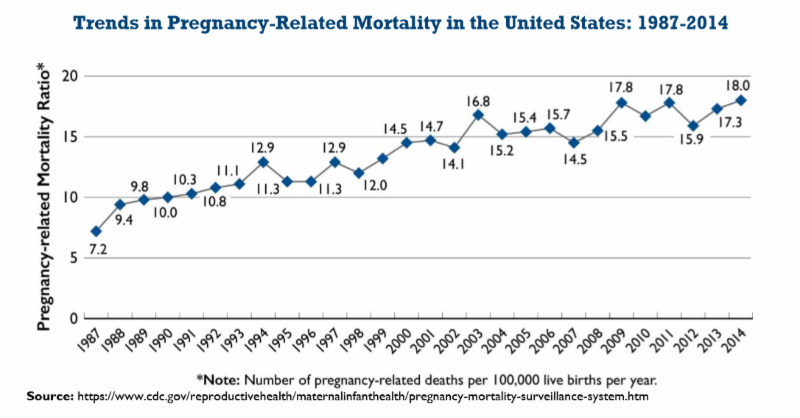
The Consumer Financial Protection Bureau (CFPB) is rolling back a recently created rule that requires predatory payday lenders to make affordable loans. Without this rule, payday loan sharks can prey on vulnerable consumers with debt trap loans causing default on other bills, overdraft fees, and even bankruptcy. Even though payday lending is illegal in West Virginia, many people fall victim to predatory lending in our neighboring states or online. A strong rule is so important to protect people from falling into the debt trap.
Please take a moment and add your name to the voices calling for the CFBP to keep its strong payday lending rule! Send in your comments by May 15.
Thank you!

West Virginia experienced historic gains in the number of residents insured when the Affordable Care Act and Medicaid expansion were implemented. In fact, West Virginia arguably benefited more than any other state.
In 2013, prior to implementation, the state’s uninsured rate was 14 percent. By 2016, it was down to 5.3 percent. But now the uninsured rate has inched back up to 6.1 percent and participation in the ACA’s programs is declining across the state. And as the uninsured rate increases, so does poverty. Read more in Kelly’s blog post.
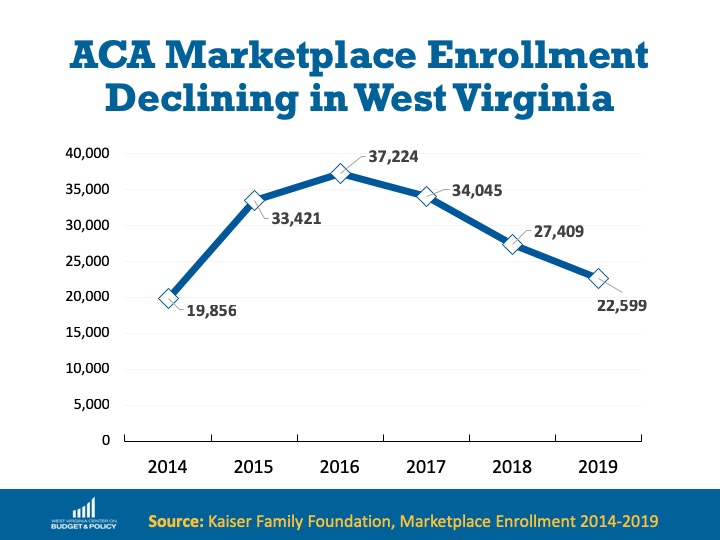
You might be surprised. Census numbers out last week showed that most West Virginia counties are losing population at a rate faster than predicted. Hardest hit are the coalfield counties along with other rural areas. For more on this trend and what’s causing it, read Sean’s blog post.
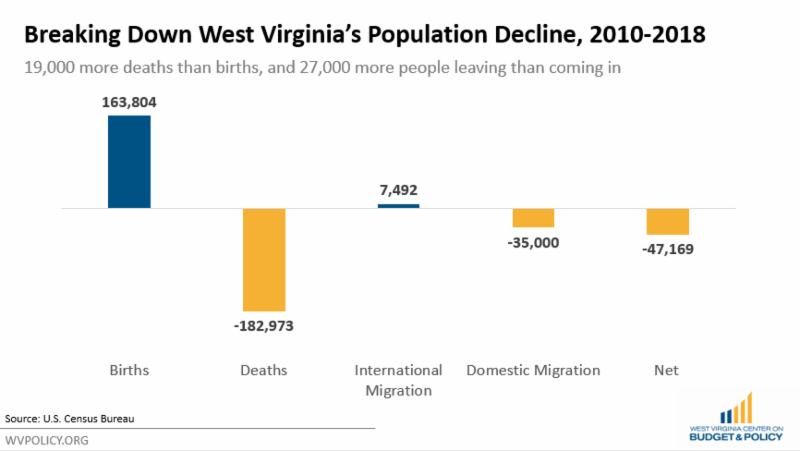
Anti-hunger advocates descended upon Washington, D.C. to talk to legislators about importance of protecting safety-net programs like SNAP. The trip was supported by MAZON, a food security organization that is providing resources to many West Virginia organizations, including the WVCBP. Representing our state is Rabbi Victor Urecki from Charleston.
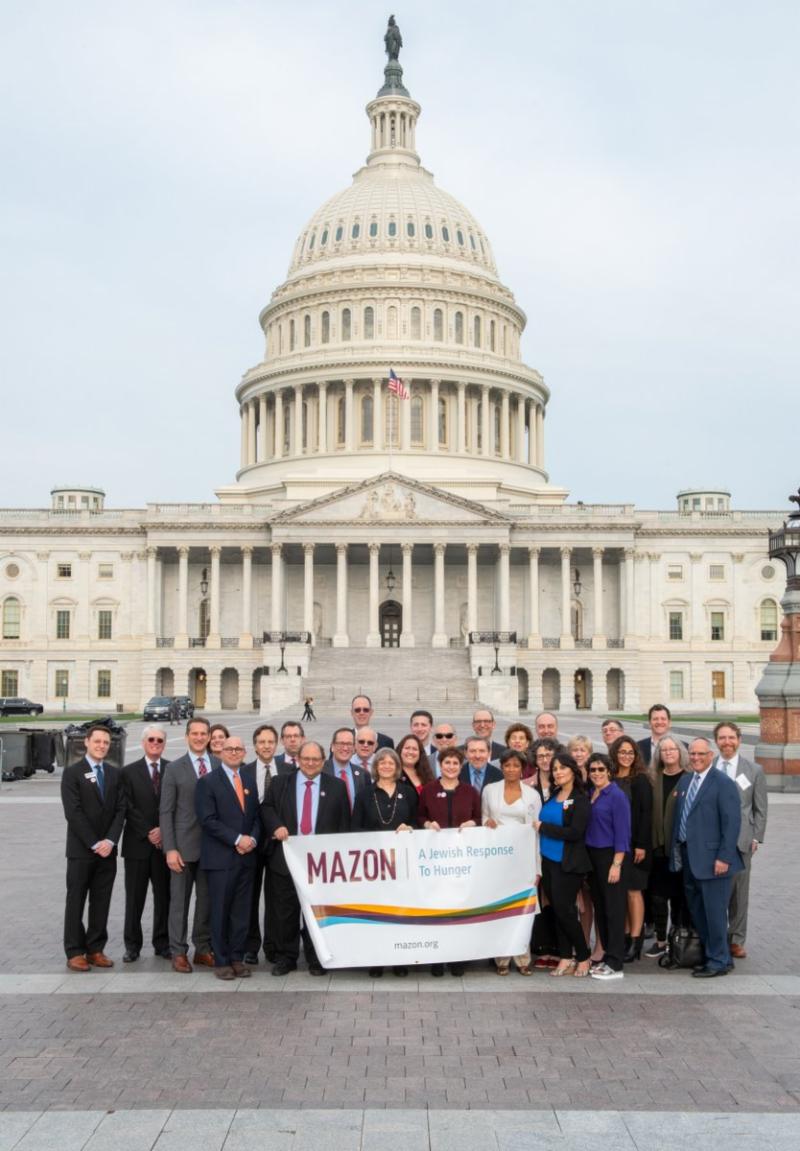
The U.S. is an increasingly unequal society: the average CEO makes nearly 800 times more than the average worker, and the wealthiest 1% of households own 40% of the wealth. It is impossible to have a functioning democracy when so few people control so much wealth.
Join us on May 19 from 2:00 – 4:00 pm at Temple Israel (2312 Kanawha Blvd E, Charleston) for a free workshop with Les Leopold, director of the Labor Institute and author of “Runaway Inequality,” to explore what inequality has to do with our current political situation and how people across the political spectrum can find common cause to fight for a fair economy. Register here.
Les will also lead a “Runaway Inequality” book talk on Monday, May 20, 6pm at Taylor Books (226 Capitol St, Charleston) to lead a discussion on:
What has made our economy less fair and left most of us less secure?
How does the US really compare with other developed countries?
What does economic inequality have to do with other critical issues, including education, criminal justice, racism, climate change, foreign trade and war?
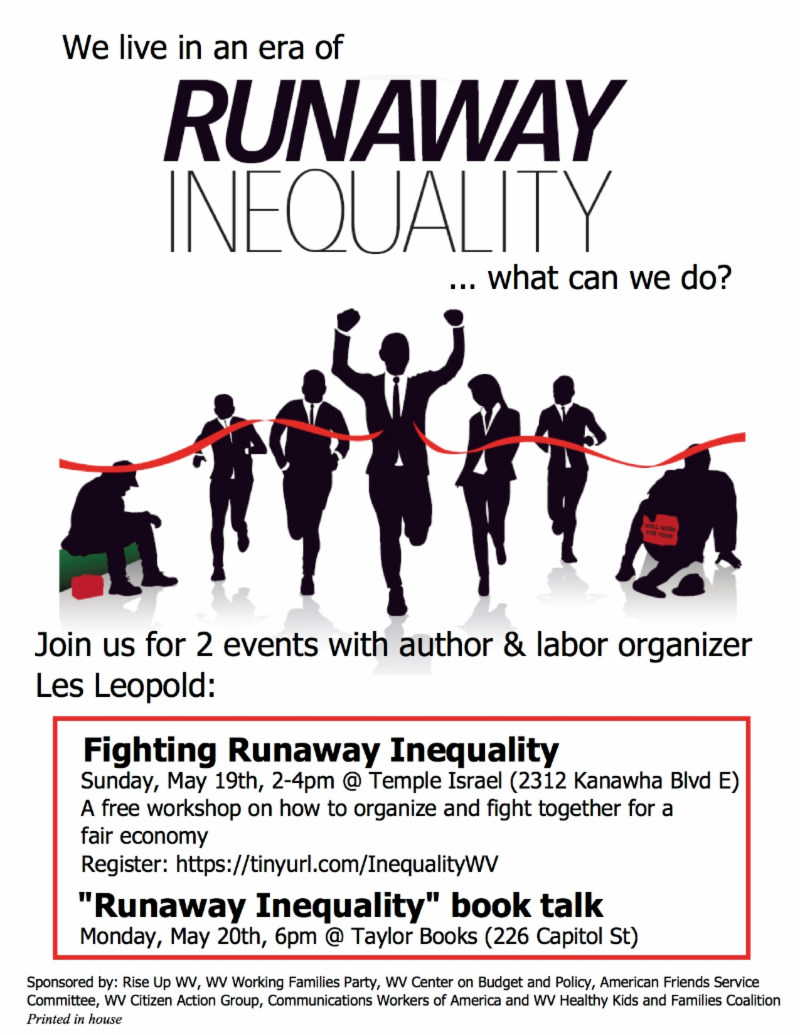
This year’s SPI will be held from July 26-28 at WV State University in Institute, WV and will center around criminal justice reforms. Panelists and speakers will highlight recent criminal justice reform victories as well as innovative policies that would help even more folks across the state avoid the criminal justice system when possible and improve the reentry process for those coming out of the justice system. Interactive sessions, including a re-entry simulation with officials from the U.S Department of Justice, will set the tone for the weekend.
Apply today! Deadline extended to May 31!
